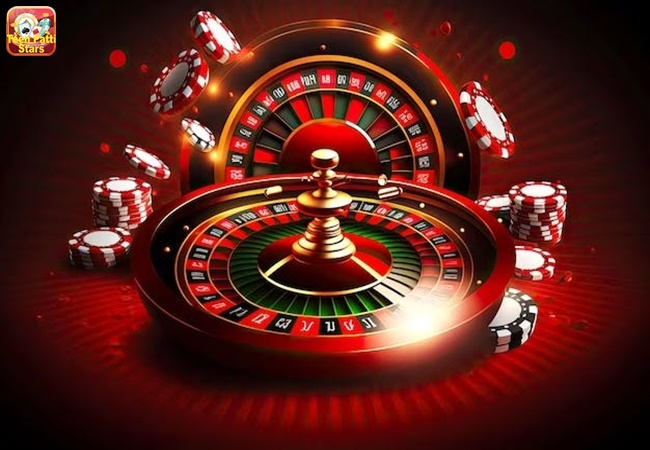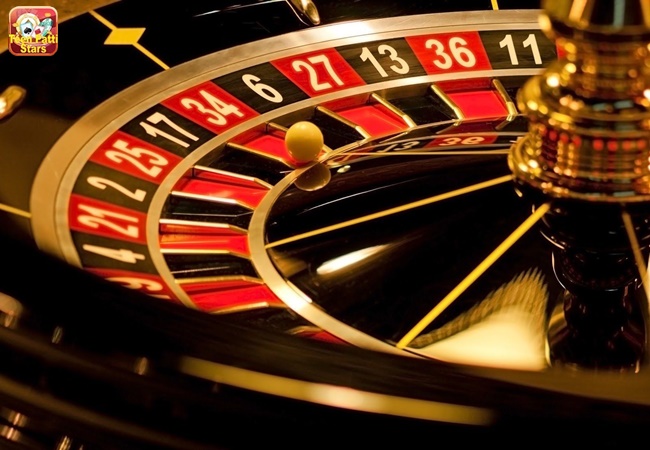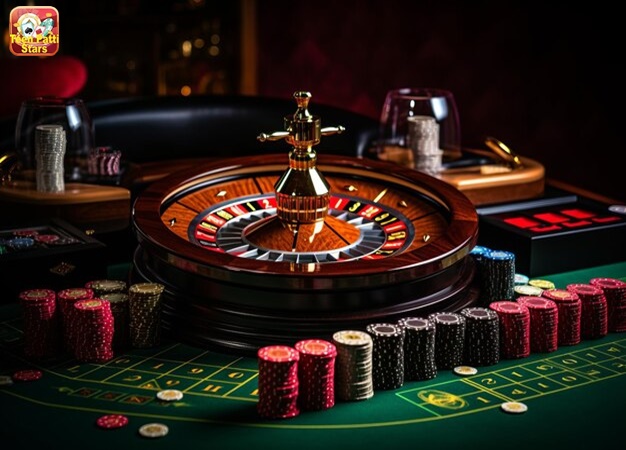The Enigmatic World of Roulette: A Game of Chance and Strategy
Roulette, a captivating and iconic casino game, has long held its place as the epitome of chance and excitement. Much like the popular game of Teen Patti, the wheel spins, and the fate of players hangs in the balance, creating an electrifying atmosphere that has fascinated gamblers for centuries. In this exploration of the world of roulette, we delve into its origins, variations, strategies, and the allure that keeps players coming back for more.

Historical Roots
The origins of roulette can be traced back to 17th-century France, where mathematician Blaise Pascal inadvertently created the precursor to the modern wheel while attempting to devise a perpetual motion machine. The first recognizable roulette wheel appeared in Paris casinos in the 18th century, marking the birth of a game that would soon become synonymous with sophistication and glamour.
The Wheel and Table Layout
A standard roulette wheel consists of 37 or 38 numbered pockets, depending on the version played. The numbers alternate between red and black, with the single zero (European) or double zero (American) adding an extra layer of complexity. The accompanying betting table allows players to place wagers on individual numbers, combinations, or even odd/even and red/black outcomes. However, it’s important to note that these dynamics differ significantly from the strategies and gameplay involved in Teen Patti games, where players typically engage in card-based gambling with a unique set of rules and betting structures.
Variations
Roulette has evolved over the years, leading to various regional and online adaptations. European and American roulette are the most prevalent, with slight differences in wheel layout and house edge. Additionally, French roulette introduces unique rules like “La Partage” and “En Prison,” enhancing the player’s odds and adding an extra layer of strategy.
The Psychology of the Spin
Beyond the mechanics and rules, roulette holds a unique appeal due to its psychological nuances. The sound of the spinning wheel, the anticipation as the ball bounces, and the collective gasp as it settles into a pocket create a sensory experience unlike any other in the casino world. The unpredictability of each spin adds an element of thrill, making roulette a game where luck and intuition intertwine.

Strategies and Systems
While roulette is fundamentally a game of chance, players have devised numerous strategies and systems to try to gain an edge. From the Martingale and Fibonacci systems to the more nuanced James Bond strategy, each approach seeks to capitalize on patterns, probability, or specific number combinations. However, the house edge remains a constant reminder that, in the long run, the game favors the casino.
Online Roulette
In the digital age, roulette has found a new home in online casinos, allowing players to experience the excitement from the comfort of their homes. Online roulette not only offers convenience but also introduces innovative variations and features, such as live dealer games, that enhance the immersive nature of the experience.
The Allure of the Spin
What is it about roulette that captivates players across the globe? Perhaps it’s the blend of chance and skill, the elegance of the wheel’s design, or the timeless allure associated with the game. Roulette transcends generations and cultures, maintaining its status as a symbol of sophistication and risk-taking.
Conclusion
In the world of casino gaming, roulette stands as a timeless classic, offering a blend of chance and strategy that continues to enthrall players. From its humble origins in 17th-century France to the modern online iterations, roulette has adapted and evolved while retaining its core essence. Whether in a bustling casino or on a digital platform, the spinning wheel remains a symbol of excitement, making roulette an enduring favorite among gamblers worldwide.

